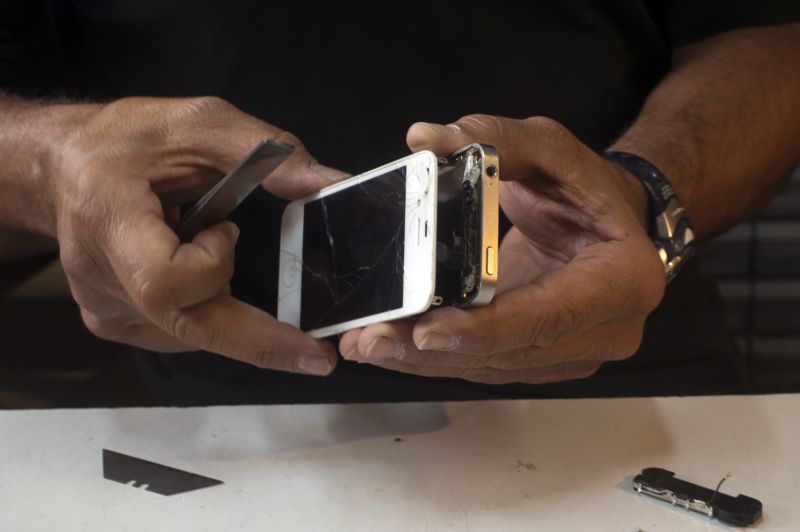
After years of petitions and proposals, momentum is building in government to give consumers broader rights to repair products they own ranging from farm tractors to mobile phones.
In a press briefing yesterday, White House Press Secretary Jen Psaki said Biden will issue an executive order directing the US Department of Agriculture to issue rules that, among other things, “give farmers the right to repair their own equipment how they like.”
The order will reportedly cover more than tractors. According to a Bloomberg report, Biden will urge the Federal Trade Commission to press computer and electronics manufacturers and defense contractors to offer additional leeway in how their devices are repaired.
Tractors became a focus of the right-to-repair movement after John Deere added a clause to its end-user license agreement in 2016 that said only Deere-authorized technicians could make repairs that touched on software embedded in the tractor. Farmers were incensed. After paying hundreds of thousands of dollars for the equipment, they felt that they had a right to decide how to fix their machines. Farmers sometimes have to perform repairs in the field or call on independent techs to minimize downtime. Requiring a lengthy trip to the dealership or waiting for an authorized technician didn’t fit with many farmers’ operations.
Yet John Deere has maintained that tweaking the company’s software to execute a repair could result in a number of issues ranging from safety to emissions.
The right-to-repair issue has brought farmers in league with electronic and computer enthusiasts, who for years have groused at the thought that they merely licensed software, didn’t own it, and weren’t able to modify it to their liking.
The Biden order will have the most sway over agricultural machines, since the USDA falls squarely under the executive branch while the FTC is an independent agency. As such, Biden cannot direct the FTC to guarantee right-to-repair. Rather, the executive order is part of how the branches of government engage with independent agencies.
Yet Biden’s nudge may be enough to push the FTC to focus more intently on the matter. The agency has been increasingly embracing right-to-repair over the years. In 2018, it sent warning letters to six companies, including Nintendo, Sony, and Hyundai, saying that “warranty void” stickers and “genuine parts” clauses are not allowable warranty terms. And earlier this year, the FTC showed more of its hand when it issued a report to Congress about the impacts of repair restrictions on consumers, businesses, and independent repair shops. It was blunt in its assessment: “There is scant evidence to support manufacturers’ justifications for repair restrictions,” the agency said.
Some companies have started taking steps to address the criticisms—and potentially to head off legislative or regulatory action that would open the repair process further. For example, Apple started a program in 2019 that gave independent repair shops access to genuine Apple parts, tools, training, diagnostics, and more.
That hasn’t stopped the tide of legislation, of course. Last year, Massachusetts voters passed a ballot initiative to expand its automotive right-to-repair law to include connected-car platforms and telematics services. And last month, Rep. Joe Morelle (D-NY) introduced the Fair Repair Act, which would require mobile phone and computer manufacturers to provide independent repair shops with documentation, diagnostic, and repair information.
Biden’s executive order could usher in sweeping changes or just nibble around the margins—we’ll have to wait for the full text to know more. Regardless, with the FTC pursuing the matter along with legislation popping up both in states and in Congress, it seems likely that consumers will have more repair options in the near future.
https://arstechnica.com/?p=1778628

